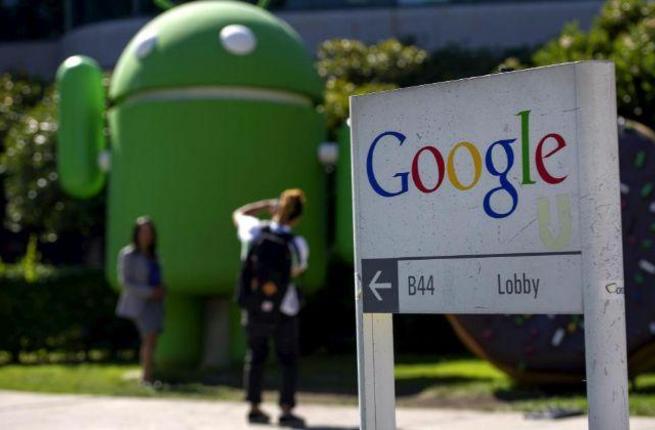

Oracle, it’s safe to say, is a bit perturbed about the $9 billion judgment against Google it was not awarded earlier this year. Larry Ellison’s software empire, you may recall, is embroiled in an ongoing legal battle with the search giant over the originality of the latter’s Android operating system, and things, you might say, just got real. On Wednesday, Oracle’s legal team accused Google of “withholding” information regarding the availability of Android apps on platforms other than smartphones. And most recently, it’s been revealed that Oracle has been funding “The Google Transparency Project,” which is in short, an anti-Google group.
Updated on 8-21-2016 by Lulu Chang: Oracle funding an anti-Google non-profit
The non-profit alleges it exposes “various villainies carried out by the search giant,” Fortune reports. And Ken Glueck, Senior Vice President of Oracle, is not backing away from their part in the Project. “Oracle is absolutely a contributor (one of many) to the Transparency Project. This is important information for the public to know. It is 100 percent public records and accurate,” he said.
As for the ongoing legal battle, counsel for Oracle requested a new, third hearing regarding the issue at hand: whether or not Google, in building Android, copied bits and pieces of the Java Standard Edition source code that Oracle acquired from Sun Microsystems in 2010. The reason? Lawyers for the company contend that Google knowingly, concertedly concealed a pertinent fact during the last trial which, they argue, swayed its outcome: that Android apps were coming to Google’s Chromebook-branded laptops and desktops.
It was an open secret, really. Google launched ARC, or App Runtime for Chrome, which allowed developers to convert off-the-shelf Android apps to versions compatible with Chrome OS, last year in beta. And during the companies’ last courtroom encounter, Google’s lawyers volunteered ARC’s documentation and development history. But what Google failed to mention, Oracle said, was that it was developing a system alongside ARC that would accomplish much the same — translating Android apps into a form that Chrome OS can understand — more efficiently.
It was unveiled at the company’s developer I/O developer conference in May. Google announced that the Play Store — the apps marketplace available on Android devices — would hit Chromebooks running Chrome OS version 37 and higher “later in the year.” And it told reporters in attendance that a new compatibility layer made the integration possible.
“We have redone this completely differently,” Zelidrag Hornung, engineering director of Chrome and Android, told Ars Technica. “There are no connecting points between [ARC] and [the new system] from an implementation perspective.”
That’s what has Oracle’s feathers ruffled. Lawyers for the company content that Google’s expert witnesses “lied” when they told the jury that Android ran strictly on smartphones, tablets, and other portable devices — and not the desktop machines traditionally associated with Java Standard Edition.
“They were perpetuating a fraud on the jury,” Oracle attorney Annette Hurst told presiding Judge William Alsup. “This was a shock to the industry and to us.”
As Vice’s Motherboard points out, though, Chrome OS is far from the only platform to which Android has expanded since Oracle’s battle with the search giant began four years ago. 2014 saw the debut of both Android TV, Google’s operating system for set-top boxes, and Android Wear, a slimmed-down OS designed to run on smartwatches, wristbands, and other forms of wearables.
That fact didn’t escape mention at this week’s hearing, either. Google attorney Christa Anderson, responding to a question by Judge Alsup about Oracle’s legal standing, said that the company was entitled to sue over every and all forms of Android — including Android TV, Android Wear, and Android apps on Chrome OS. And she left open the possibility that Android Nougat, the newest version of Android, could be included in a new suit, too. That would be particularly problematic for Google: Nougat supports Java version 8 by using, presumably, the same code over which Oracle sued Google in the first place.
But Oracle isn’t the only one throwing a hissy fit. Google’s legal team has filed for “a finding of civil contempt and sanctions against Oracle,” and $3.9 million in court costs. A hearing over those complaints begins on September 22.
[Source:- Digital Trend]





